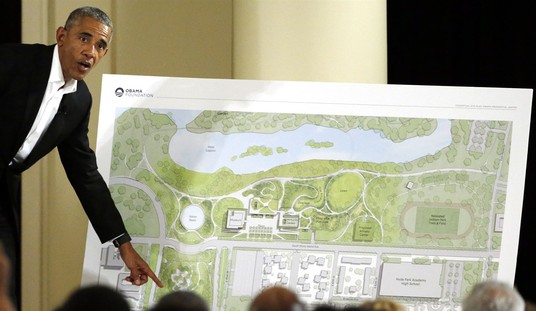I don’t always agree with Carolyn Glick, who is more of a fire-breather in the war against jihadism than I am, but the woman has to be reckoned with and respected for her honesty. Her column in the Jerusalem Post last week is an excellent summa of where we are now and ends with these depressing words:
FOR MORE than two years, the Israeli government and media have told the public that no matter how our enemies threaten us, they can do us no harm because America is protecting us. Protected by America, Israelis are told that we have no reason to fear the consequences of IDF retreats and the transfer of vacated lands to Hamas.
Sadly, this promise is largely untrue. The Bush administration today is bogged down in a swamp of strategic paralysis and political distress that prevent it from designing clear policies regarding the war against global jihad.
American policy towards the Palestinians is case in point: One day the Bush administration announces that it is cutting its ties with the Hamas-led Palestinian Authority and the next day it demands that Israel keep the borders with Gaza open and promises to find a way to give direct aid to the Palestinians that somehow will not strengthen Hamas.
As to Syria, the stubborn stance the administration maintained towards Damascus during the months of Detlev Mehlis’s investigation of Hariri’s murder has been replaced by no stance. Aside from finger pointing at Damascus, Washington offers no plan for ending Syrian support for terrorists in Lebanon, the PA and Iraq.
On Wednesday, The Wall Street Journal noted that during her weekend pit stop in Baghdad, US Secretary of State Condoleezza Rice came down publicly against Prime Minister Ibrahim al-Jaafari’s bid to maintain his position in the next government. Rice and her British counterpart, Jack Straw, announced their governments’ support for Finance Minister Adel Adul Mahdi, who serves as the head of the Supreme Council for the Islamic Revolution in Iraq, which is known to have strong relations with Teheran.
Rice’s heavy-handed interference with Iraq’s democratic processes goes hand in hand with the administration’s decision to open direct negotiations with Iran for the first time since the Khomeini revolution in 1979. On Saturday, direct US-Iranian negotiations on the stabilization of Iraq are scheduled to begin. And as if the Bush administration’s decision to legitimize Iran’s destabilizing position as a power broker in Iraq weren’t enough, on Tuesday German Foreign Minister Frank-Walter Steinmeier met with Rice in Washington and urged her to open a direct dialogue with Iran on its nuclear weapons program.
All of these recent developments demonstrate that the members of the Iran-led Islamist axis are actively pursuing and indeed progressing in their quest to encircle Israel and entrap the US. This they accomplish – both separately and together – while Israel and the US insist on doing everything they can to prevent any possibility of effectively meeting the rising threats. There is no doubt that the political leadership of at least one of these states has to snap out of its policy fog immediately. Our enemies have no consideration for our desire to ignore them.
While I might disagree with Glick on strategic issues (i. e., to what extent Israelis should withdraw from West Bank settlements) and I am agnostic about Rice’s handling of the Iraqi political scene (I don’t know enough), I certainly don’t quarrel with Glick’s main point. We are clearly in a fog. Our policymakers are unsure what to do. Is Iran (and by extension the Islamic world) somewhere-somehow reasonable or is it inextricably mired in a culture of religious and ethnic lunacy? This is a far larger question than even the Iraq War, which is only one benchmark. News like today’s stampede in Pakistan, especially since it is not all that exceptional, is not encouraging to those who want to believe in reasonableness. And yet, ironically, it was this reasonableness upon which the administration depended in invading Iraq. The main argument of the war’s critics (when you cut through all the partisian blather about WMDs) is that the invasion would only make things worse–a dark conclusion about the Islamic world with overtones that are not even remotely liberal. And so far these critics seem to have a point (at least partly).
But where does that leave us? These same critics, so far, have no concrete proposals whatsoever to deal with the situation. Isolationism would have been an option, but isolationism only works if both sides will play. Jihadism, which is about proselytizing by any means necessary, is the antithesis of that. Whatever comes from this conundrum, the solution will take serious national dialogue in this country and, ultimately, some consensus. The ultra-partisan political climate we are in is the enemy of this, yet the problem becomes more acute by the minute. Blink and you’re in a nuclear-armed Middle East. The only people who should be happy about that are those who believe in population control, a long-descredited thesis.









Join the conversation as a VIP Member